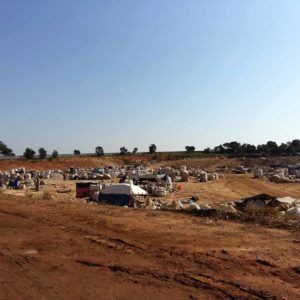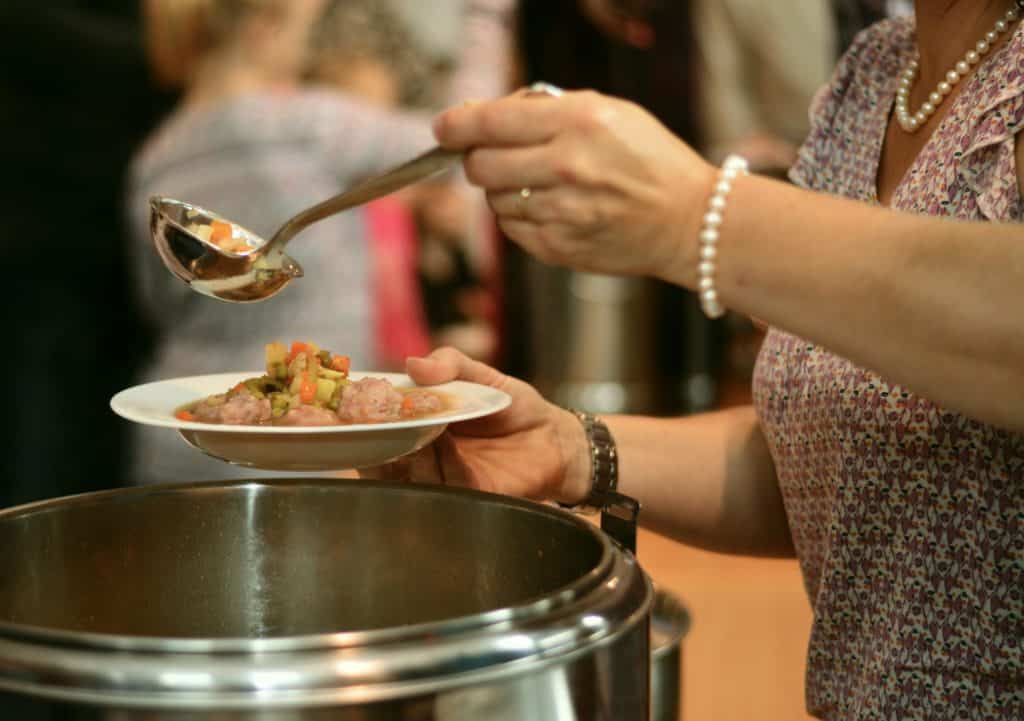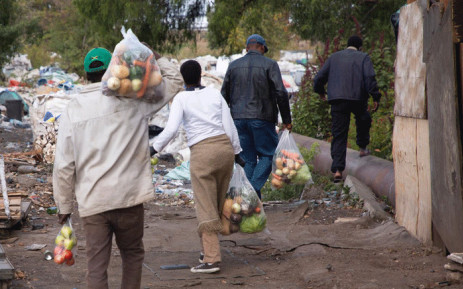Women at the centre of the food cycle – webinar on food security post-Covid-19
A virtual dialogue looking at the important issues surrounding food security pre- and post-Covid-19, has revealed that women are at the centre of the food cycle. Hosted by the DSI-NRF Centre of Excellence in Food Security, presenters at the webinar revealed that access to food does not take place in a vacuum but rather in the politics around it.
Times have been perilous for farm women and waste pickers

The Centre of Excellence in Food Security is hosting a series of 2020 Women’s Month Webinars over August, the first of which, held on 13 August 2020, focused on the precarious livelihoods of farm women and waste pickers.
A mother in tears because she has a loaf of bread to eat but not enough money to send to her children in another town or city, or even country. Stories like this one, as recounted by waste picker Eva Mokoena, typified what was happening around the country amid the COVID-19 lockdown.
Poor have borne the brunt of “inappropriate” Covid-19 regulations, experts say
The loss of jobs and desperately needed revenue to the state resulting from Covid-19-related restrictions will negatively impact the critical funding of social protection programmes. Addressing the webinar, the director of the Centre of Excellence in Food Security at the University of the Western Cape, Professor Julian May, said the loss of jobs and desperately needed revenue to the state resulting from Covid-19-related restrictions would negatively impact the critical funding of social protection programmes.
Civil Society’s rapid response averts covid-19 hunger catastrophe
The massive mobilisation of civil society organisations across the Western Cape in the first six weeks of the COVID-19 lockdown, while the government scrambled to put in place financial alternatives for food relief, averted a hunger crisis of catastrophic proportions.

Bottom-up approach to food relief, if properly instituted in a dignified, collaborative manner, is the way to go with grassroots food distribution
The statistics tell the story; in that first month and a half, the South African Social Security Agency reported, the number of people no longer getting paid anything at all spiralled from 5.2% to 15.4% – and worse was expected to come.
In the Western Cape, civil society was on the move and, in the 74 days from 25 March, they fed more than 41 000 hungry people every day, prepared more than 3 million meals, distributed nearly 80 000 food parcels, and assisted households and community kitchens with digital shopping vouchers to the value of R854 700.
There are now calls for the government to give them a place at the proverbial table, so those relationships can be harnessed beyond the crisis, and their valuable input can drive food policy to ultimately frame long-term solutions.
Hunger catastrophe avoided in SA thanks to civil society organisations
A hunger catastrophe was averted in the country thanks to civil organisations that distributed food parcels to those in need when the Covid-19 pandemic hit. According to the DSI-NRF Centre of Excellence in Food Security, and the Centre for the Study of Governance Innovation in the Western Cape, civil society was on the move in determined fashion.

Image credit:Brendan Magaar/African News Agency (ANA)
People are hungry: Remove bureaucratic red tape limiting access to food
People are hungry, it’s time for the South African government to remove the bureaucratic red tape limiting access to food. The Southern Africa Food Lab notes with concern indications in the media and from first hand reports, that government is acting to limit civil society initiatives for food security and food relief.
Vers un déploiement militaire massif en Afrique du Sud
La décision du président Cyril Ramaphosa survient après que des manifestations de colère liées à l’accès à la nourriture ont été signalées dans les secteurs défavorisés de plusieurs grandes villes du pays.
Julian May, professeur rattaché à l’Université du Cap-Occidental, au Cap, note que plusieurs familles ont pu survivre dans les premières semaines grâce à des allocations distribuées par le gouvernement pour les enfants et les aînés.
SA needs a place-based approach to restarting the economy

A place-based approach, which considers local and community contexts, may offer a way forward, both to re-opening the economy and building resilient urban areas. This approach would involve targeting geographical areas and sectors.

Place-based approach would involve targeting geographical areas and sectors where the infection risk remains low to relax the lockdown.



